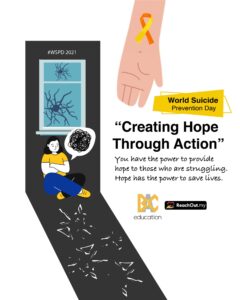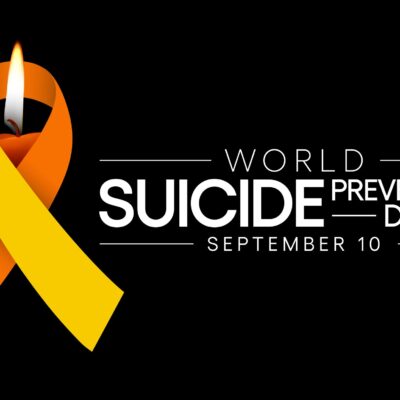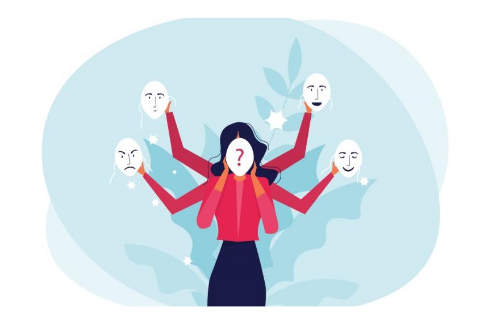By Wong Kit Ei & Soniapreet Kaur (BAC Apprentices)
Today is World Suicide Prevention Day. 10th September has been observed since 2003, to create awareness calling for worldwide action and commitment for the prevention of suicide.

It is undeniable that this worldwide pandemic has taken a toll on many. Freedom of movement involuntarily robbed, strict travel restrictions in place curbing and curtailing our every move, economic downturn leading to loss of jobs and income, closure of businesses, unemployment on the rise, the fear of contracting the virus, the inability to spend quality time with friends and loved ones, the challenges of adjusting and adapting to new practices, the loss of human connection. All these and more, are straining our mental health.
One of the most pernicious side effects of the Covid-19 pandemic is stress. Covid fatigue and burnout has been subtly inching its way into our lives. It saps our energy, cripples our momentum, and sometimes when one feels all alone and hopeless, one begans to retreat into one’s mind.

Hopelessness. Social-isolation. Impulse control disorder. Self-harm. How can we know if our loved ones are suicidal? Although technology has made communications easier, with video calls and text messages, there is still a pressing need to identify signals and red flags through these forms of communications in the new norm. As a community, we need to consciously act, because these signs should not be simply brushed off as a mere warning, but it should be considered a desperate cry for help.

RED FLAGS:
- Conversations include killing or harming oneself, which may or may not be done in a joking manner.
- Posting and sharing about death or dying on social media
- Sudden change of behaviour
- Sleep lost or oversleeping
- Exposure to suicide – family history or a history of attempted suicide
- Sense of hopelessness – nothing to look forward to in life (blank future)
- Noticeable changes in appearance, sleeping and eating patterns
- Detachment from events or activities that one was previously fond of
PREVENTION:
Removal of self-harm objects
If you know that one is inclined to hurting himself/herself, help create a ‘clean, clutter-free’ space for them. This will prevent them from having access to lethal objects or means in the house.
An ear to listen & a shoulder to lean on
If you are going through a tough time, or know of anyone that is, find someone to talk to, or confide in. It should be made known that there is an outlet to release suppressed emotions. This may help one cope with loneliness, depression, and hopelessness. Always remember, you are not alone.
Seek professional help
If you need to, do not hesitate to seek professional help. If you know someone who does, encourage or help them get professional help, or direct them to support helplines. If you have the fear of being stigmatised or labeled, and have trust issues, there are parties who can help.
Always check-in
When you know a person who is struggling, always check on them. Even though their problems on the surface have been solved, there may be some other deeply rooted issues that may have stemmed from the initial issues itself.

Suicidal thoughts are real and distressing. Feeling suicidal is not a reflection of your character, but it signifies that you are experiencing more pain or sadness than you can cope with. You may think that what you are feeling will never end, but do realise that help is at hand, and you can overcome this.
If you have suicidal thoughts or know someone who is feeling suicidal, feel free to reach out here.
Remember, you are not alone.



